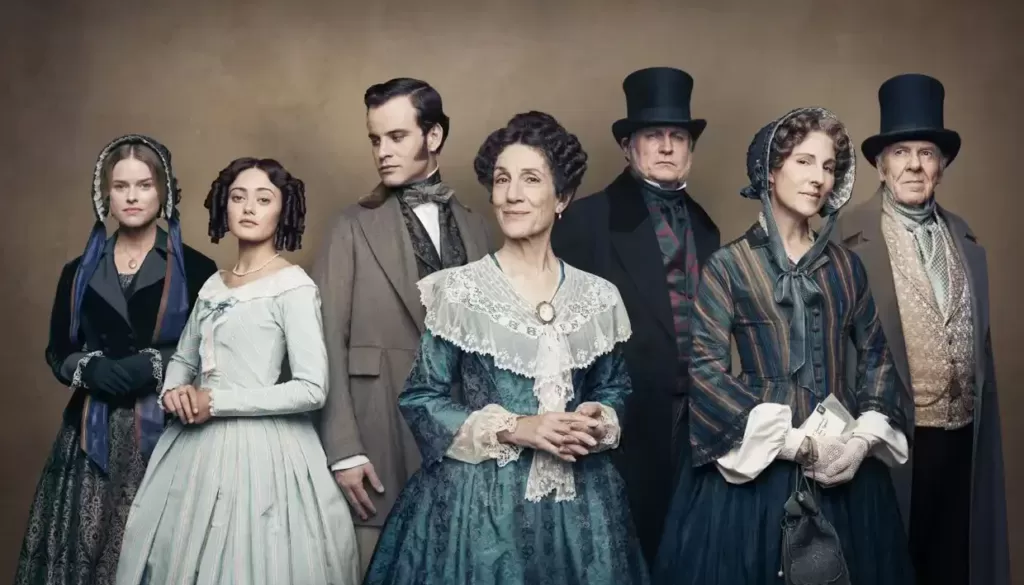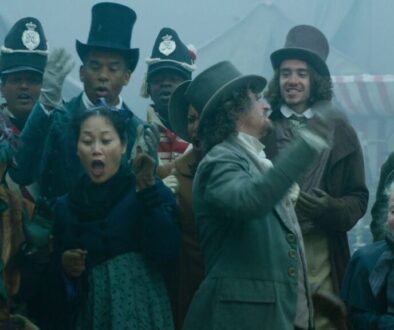The Signs For ITV’s Shift Away From Period Drama Existed Years Ago
Here’s a period drama trend I wanted to make a thread about but thanks to recent headlines, I can revisit the idea. Yesterday (August 26), there was an article from Daily Mail UK which reported on a speech Polly Hill gave to the Edinburgh TV Festival. To sum up the article, Hill said ITV is moving towards commissioning more crime dramas because of budgets and ad revenue.
The headline is designed to draw attention from angry period drama fans, but the facts are clear. Pandemic filming protocols and expenses accidentally helped the cause of being budget-conscious. ITV has lost a significant amount of money in the past 5 years investing in big-budget period dramas which couldn’t match Downton Abbey’s ratings records.
This does not mean period dramas are disappearing on ITV entirely. This also doesn’t mean there will be no period dramas from other networks with different business models. ITV is working on Sanditon Season 2 via their shares in BritBox UK plus The Darling Buds of May reboot which is set in the 1950s, and The Confessions of Frannie Langton which is set in the 19th century but has a heavy Black history and crime slant. These are not your traditional rich folks in costume dramas. They are heavy on working and middle-class representation which means a smaller budget.
Racists and genre purists may claim the reason is that diverse cast period dramas are not popular. This is not only untrue but also a purposeful conflation of what period dramas ITV has and those made by other networks. Anne Boleyn was a Channel 5 miniseries, and sadly still can’t be seen in the US. The Singapore Grip (sorry this also doesn’t have a US distributor), Vanity Fair, and Sanditon all had characters of color because the novel authors wrote these characters to reflect historical racial dynamics. Victoria and Beecham House had a mix of real Black/POC historical figures and fictional characters that were composites of real people. The Halcyon is the only series where it can be argued colorblind casting may have been a factor, and even that is debatable given the series has WWII era antisemitism/xenophobia as a subplot.
The article referred to Sanditon’s initial cancelation and Belgravia’s lukewarm reception, but there are other examples of ITV-backed period dramas that did poorly in UK ratings. Remember, ITV cannot take into account people viewing series via PBS/US Prime Video/other international streamers and cable ratings when making cancelation decisions. Those numbers show up months or even years after the UK airing. Also, fans of many of these series watch the show via VPNs and pirated copies which also cannot be counted. Social media buzz can only translate to UK ratings IF UK cable subscribers actually watch on ITV/ITV Hub.
Let’s rewind a few years back to the examples not listed in the original story. Home Fires cancelation debacle. One of the reasons why ITV pulled the plug is the claim their advertisers lost money because people outside the 18-49 demo were watching the show. The social media campaign to save the show centered on the same fans who refused to buy the products the ads were promoting. The Halcyon which was an attempt to attract younger and more diverse viewers to a World War II drama was also canceled because of low ratings and the expense of recreating The Blitz. (I also suspect paying music royalties to Jamie Cullum and Beverly Knight did not help that Excel sheet either.)
Beecham House was filmed in India only for the series in the UK to be pit against Poldark’s final season which led to abysmal ratings. The Singapore Grip, although intended as a miniseries, was also filmed in several Southeast Asian locations which clearly also affected the bottom line. (There are also arguments to be made about the subject matter causing viewers interested in escapist drama to turn away, but that’s for another time.)
ITV’s costume drama co-productions with international networks still suffered from low UK broadcast ratings and budget overruns. PBS calls Victoria one of its biggest recent successes, however, ITV spent around £1 million an episode. The third season which aired on PBS first due to production delays had much lower UK ratings than the first. Although the series was never officially canceled, it is clearly on an extended hiatus because of high production costs and cast schedule conflicts. Amazon co-produced The Collection about a post-WWII fashion house in Paris and the 2018 Vanity Fair miniseries with ITV and both had less than stellar ratings as well. Amazon and ITV realized The Collection didn’t turn a profit for either side so they canceled the second season.
Why are crime and procedural dramas ITV’s new go-to? First of all, most are set in modern-day and are easier to film in a covid bubble. Studios, warehouses, and unoccupied buildings are cheaper to rent for filming than the stately houses and custom-built sets to recreate period settings require. Costumes are often brought off the mall rack or obtained from uniform suppliers. Many shows are able to target the important 18-49 demographic or even in some cases the 18-34 demographic advertisers want to reach.
What about the current ITV crime series that are also period dramas? Right now, ITV has both Grantchester and Endeavour. The 1950’s and early 1970’s have plenty of representation in vintage and costume shops. Making original costumes for these decades is much cheaper than replicating 19th and earlier centuries. Above all, both have enough crime/procedural elements to keep them from being seen as purely a period drama. Both series successfully filmed during the pandemic.
What does this mean for future ITV period dramas? This clearly means they’re going to be taking fewer risks on big-budget costume dramas and focus more on productions that can attract younger and/or diverse audiences. This shift may affect what PBS is able to pick up from ITV but Masterpiece also has a vibrant tradition of crime dramas as well. Audiences who love the traditional period dramas need to adjust their expectations and expect many of these new productions may not cater to their interests. This is a shift in the business, not the end. As it is, the post-pandemic economy and changes in staffing may well reintroduce this question and the answer will be different.

